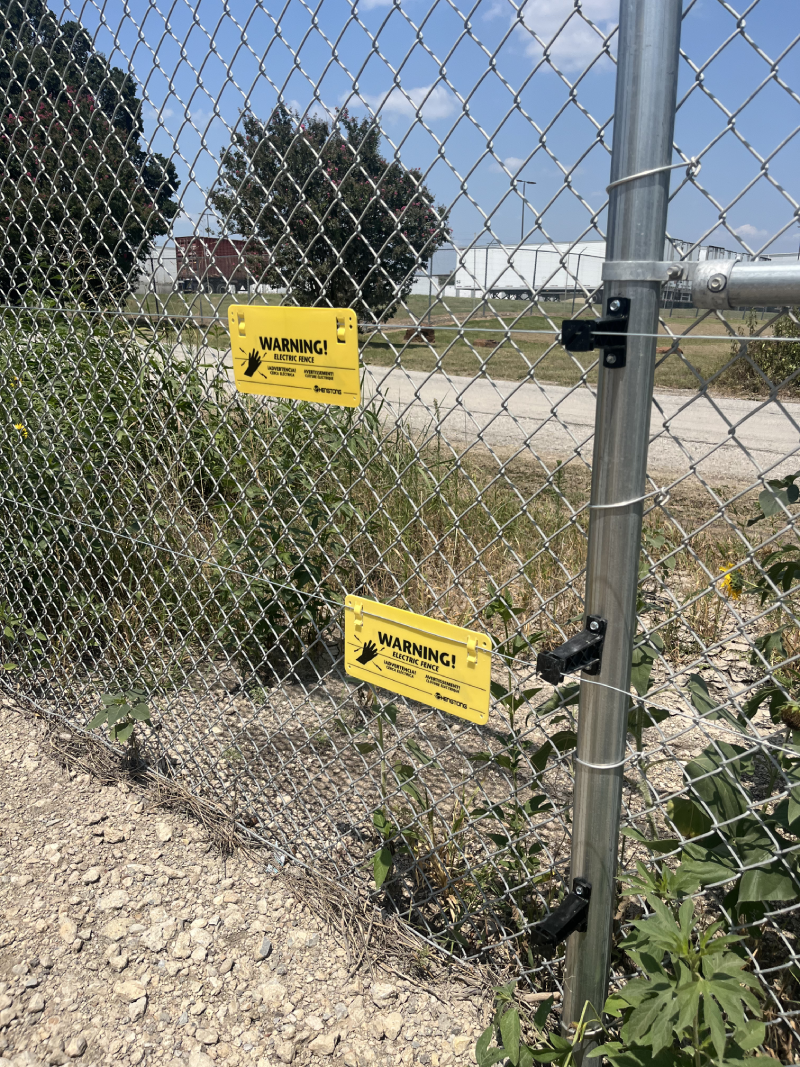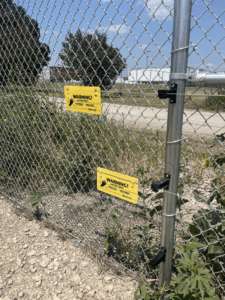Every day, thousands of truck drivers finish long hours on the road and end up facing another problem: finding a safe place to park their trucks. A driver has to cover 500 miles in a shift, deliver goods on time, and still end the day circling highways or rest areas in search of parking. By the time a spot is found, valuable time and fuel are already wasted.
This shortage of truck parking has become one of the biggest challenges in the U.S. logistics industry. It affects drivers, creates delays, increases costs, and adds stress to a system that is already under pressure. The U.S. is a country that depends on trucking to move everything, like groceries, construction materials and other things. Parking does sound small, but it has a big role in keeping the supply chain moving.
The Scope of the Truck Parking Shortage
The U.S. has about 3.5 million truck drivers, including both employees and owner-operators, driving everything from long-haul rigs to regional delivery trucks. This number only grows as cargo demand rises, but the supply of safe and legal truck parking has not kept up.
It is known that parking is one of the top daily struggles for these drivers. This comes very clear when you look at the availability. For every ten trucks on the road, there would only be one or two legal parking spots open. This leaves thousands of drivers each night searching for hours or simply forced to stop in unsafe or unauthorised areas like highway shoulders, exit ramps, or deserted lots.
However, this is not just a problem in busy cities. Even on interstate highways, truck stops, and rest areas are usually full by early evening. This pushes the drivers to either park illegally or keep driving past their legal Hours of Service limits. Both of these options have a risk in terms of safety and following rules.
This shortage keeps growing as the cargo traffic increases. Although zoning rules and land costs make it hard to build new facilities. What drivers face is that in one region, the same story nationwide is that there are too many trucks and not enough parking.
Related: Why More Secure Truck Parking is Needed to Reduce Cargo Theft
Why Truck Parking Matters for Logistics?
Truck parking makes a big difference in logistics. Drivers need to follow Hours of Service (HOS) rules. These specify how long they can drive before stopping to rest. If they can’t find a safe truck parking space in time, then they risk breaking the law and losing their driving hours.
This also affects delivery schedules. A driver who spends an extra hour searching for parking can miss a delivery window. This will set off a delay in the supply chain. If we multiply that by thousands of trucks every night, the effect ends up becoming huge.
With this, there is a cost side. Circling on highways or driving extra just to find parking burns more fuel, adds wear to the truck, and increases operating expenses. In an industry where every dollar counts, this wasted time and fuel eats up the profits for carriers, shippers and eventually raises the prices for customers.
How Does the Parking Shortage Affect Drivers?
For truck drivers, the lack of parking is a daily stress. After long hours on the road, many end up parking on highway shoulders, ramps, or empty lots when safe spaces are not available. These spots leave them exposed to theft, vandalism, and, many times, accidents.
Safety is not the only concern. Poor parking conditions mean drivers can’t get proper rest. Sleeping in noisy or unsafe areas results in fatigue. This directly affects focus and reaction time when they are behind the wheel. In an industry that already demands long hours and constant alertness, this is another big risk.
With these, the stress of finding a good truck parking space every day pushes some drivers to leave the industry altogether. Driver turnover is already high in trucking, and parking shortages only make it harder to keep experienced drivers on the road.
Related: How Truck Parking Shortage is Impacting the U.S. Trucking Industry
Main Causes of Truck Parking Shortage
This truck parking crisis has been building up for years. There are different factors that make it difficult for drivers to find safe places to stop.
1. Growth in Cargo Demand
The U.S. economy depends heavily on trucks to move goods. This is the reason why load volumes keep on climbing every year. More trucks on the road means more drivers looking for places to park. But parking capacity has stayed almost the same. The difference between the number of trucks and available spaces grows wider each year.
2. Zoning and Land-Use Restrictions
Even if there’s space for parking, local zoning laws sometimes block new facilities. Many communities are against truck stops, often because of their concerns about noise, traffic, or pollution. This makes it harder to add parking near the areas where it’s needed most, like cities or busy highways.
3. Limited Investment in Rest Areas
State budgets for rest areas have been shrinking. Some facilities have closed, and many of the ones still open haven’t updated in decades. Without funding for spaces, lighting, and security, rest areas can’t handle the growing demand from today’s trucking industry.
4. Urban Congestion and High Land Costs
In freight-heavy areas, land is both scarce and expensive. Developers usually prefer to build shopping centers, housing, or warehouses instead of parking lots for trucks. For drivers, this means the areas with the most cargo activity have the least available parking.
These factors stack up to create a shortage that drivers feel every single day. It’s not a temporary problem; it’s built into how cargo, land use, and infrastructure have been managed across the country.
What is the Impact on the Logistics Industry?
The shortage of truck parking spaces doesn’t stop with drivers. It affects the entire logistics system.
1. Delays in Shipment
When drivers spend an hour or more searching for a safe spot, it cuts directly into their driving time. Deliveries that could have easily been on schedule usually end up late. In logistics, even small details can be felt in warehouses, distribution centers, and retail shelves.
2. Higher Operating Costs
Trucks burn extra fuel when they are circling highways or detouring miles out of the way to just find parking. This wasted fuel, along with added maintenance costs, increases expenses for carriers and shippers. In the whole process, these costs also trickle down to customers.
3. Supply Chain Inefficiencies
Logistics depends on tight schedules. If one truck is delayed, it can throw off loading docks, warehouse staffing, and customer commitments. A single missed delivery window can create a chain reaction of disturbances.
4. Drivers Turnover and Labor Challenges
The stress of not finding safe parking every night gets added to an already demanding job. Many drivers leave the industry because the quality of life on the road feels unsustainable, with the driver shortage already being a major problem in the U.S., parking issues make it even harder for companies to retain experienced drivers.
The end result is clear: without enough truck parking space, logistics become slower, more expensive, and less reliable. Parking can look like a simple problem, but its impact is felt all the way from drivers on the road to consumers at the store.
Related: How to Ensure Your Truck is Safe in a Secure Semi Truck Parking Lot
The Efforts and Solutions to the Truck Parking Shortage
The parking shortage is a national issue, and both government and industry groups are working on finding ways to fix it. There is progress, but it has been slow. However, there are steps being taken:
1. Government Action
The Federal Highway Administration runs surveys under Jason’s Law to track parking shortages and push states to invest more in rest areas. Some states have also added funding to increase parking or reopen facilities that had been closed.
2. Technology and Apps
Many platforms now give drivers real-time updates on available parking spaces at truck stops and rest areas. These tools save drivers from wasting time searching and help them plan routes more effectively.
3. Private Investment
Truck stop operators and logistics companies are starting to build more dedicated parking lots. Some of these are paid facilities with better lighting, security, and amenities to give drivers peace of mind while resting.
4. Future Solutions
Smart parking technology, reservation systems, and partnerships between logistics companies and parking providers are being tested. The goal is to make parking more predictable and lessen the time drivers spend searching for spots.
There is no single fix that will solve the problem overnight. But these combined efforts will give way to a future where safe truck parking spaces are easier to find and more reliable nationwide.
Related: What Are the Legal Requirements for Truck Parking in Dallas, Texas?
Final Thoughts
Truck parking feels like a small detail, but it’s one of the biggest challenges the U.S. logistics industry faces. With millions of drivers on the road and too few safe spaces to stop, the effects go beyond truckers. Delayed shipments, higher costs, and added stress all start with the same problem: nowhere to park.
For drivers, a parking space is about rest, safety, compliance, and having the peace of mind to do their jobs well. Meanwhile, for the logistics industry, it’s about keeping freight moving on time and protecting the supply chain from unnecessary slowdowns.
The shortage won’t go away overnight, but efforts are being made to make progress. It needs more investment, better planning, and smarter use of technology, the gap between demand and supply can be easily closed. Until then, the need for safe, reliable truck parking will remain one of the most important issues on America’s highways.
Related: What Is the Cost of Truck Parking in Dallas & Where to Find Affordable Spots?






